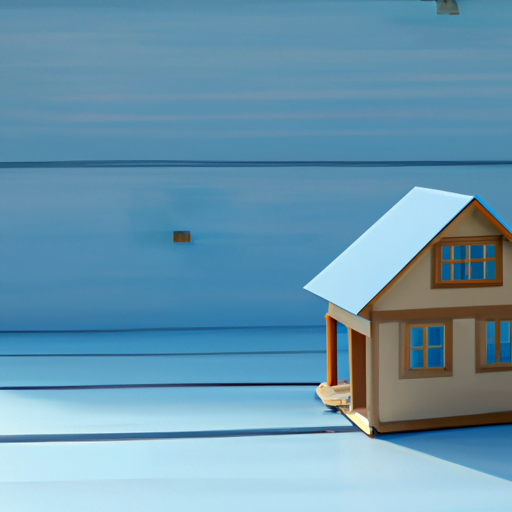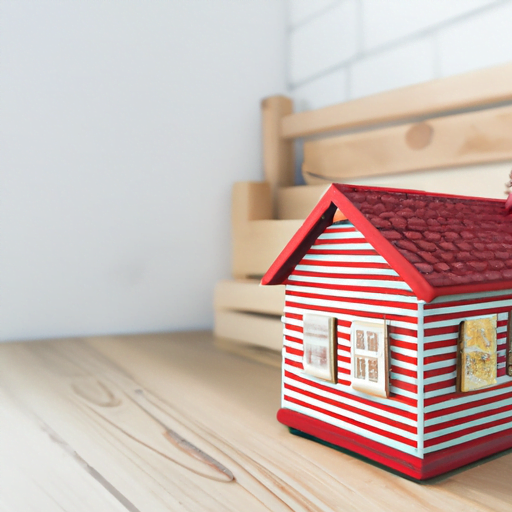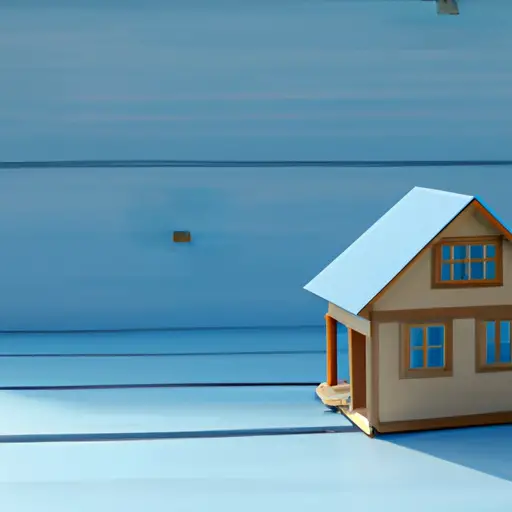Have you ever considered living in a tiny house? You know, those super small houses that are becoming quite the trend nowadays. Well, whether you have or not, there are definitely some aspects that you should consider before taking the leap into tiny house living. In this article, we’ll explore the pros and cons of living in a tiny house, so you can decide if it’s the right lifestyle for you.
Let’s start with the positives. One of the main advantages of living in a tiny house is the cost savings. With a smaller space to maintain and fewer possessions to purchase, you can save a significant amount of money. Not only that, but tiny houses are also more environmentally friendly, as they require less energy to heat and cool. Additionally, living in a tiny house forces you to declutter and simplify your life, which can lead to a sense of freedom and less stress.
On the other hand, there are some drawbacks to living in a tiny house that you should be aware of. One of the biggest challenges is the lack of space. It can be difficult to find room for all your belongings and to have enough personal space, especially if you live with a partner or have a family. Additionally, tiny houses often have limited storage options, which means you may need to get creative with organization. Another consideration is the lifestyle adjustment. Living in a tiny house requires you to downsize and adapt to a minimalist lifestyle, which may not be suitable for everyone.
In conclusion, living in a tiny house has its pros and cons. It can save you money, be environmentally friendly, and promote a simpler and more minimalist lifestyle. However, it also comes with challenges such as limited space and the need to downsize. Ultimately, it’s up to you to weigh the pros and cons and decide if living in a tiny house is the right choice for you. To learn more about this topic, keep reading our article.

Pros and Cons of Living in a Tiny House
Tiny houses have gained popularity in recent years as a housing option that offers affordability, sustainability, simplified living, and mobility. However, like any other lifestyle choice, living in a tiny house also has its drawbacks. In this article, we will explore the pros and cons of living in a tiny house, helping you make an informed decision about whether it is the right choice for you.
Affordability
One of the primary reasons people are drawn to the idea of living in a tiny house is its affordability. Tiny houses are significantly cheaper to construct and maintain compared to traditional houses. With a smaller footprint, construction costs are considerably lower, and less building materials are required. Additionally, ongoing maintenance costs are reduced due to the smaller space to upkeep. This makes tiny houses an attractive option for people on a limited budget or those looking to save money.
Another financial advantage of living in a tiny house is the reduced utility expenses. With a smaller space to heat, cool, and light up, energy costs are significantly lower. Additionally, water usage is minimized, which further contributes to saving on utility bills. For individuals looking to live a more frugal lifestyle or reduce their carbon footprint, the affordability aspect of tiny house living is undoubtedly appealing.
Sustainability
Another significant advantage of living in a tiny house is the reduced environmental impact. Tiny houses typically have a smaller carbon footprint due to their reduced size. With fewer building materials required during construction, less waste is produced. Additionally, the reduced energy consumption and water usage contribute to a more sustainable lifestyle.
Tiny houses also lend themselves to energy efficiency. With a smaller area to heat or cool, it is easier to maintain a comfortable temperature inside the house without using excessive amounts of energy. Many tiny houses are designed with energy-efficient features, such as insulation and efficient appliances, further decreasing energy consumption. For individuals seeking to live a more environmentally conscious life, the sustainability aspect of tiny house living is a significant advantage.

Simplified Living
Living in a tiny house promotes a simplified way of life. The limited space in a tiny house forces you to declutter and downsize your possessions. This can be a liberating experience, as it allows you to let go of unnecessary material possessions and focus on the things that truly matter to you. Simplifying your life in this way can lead to a greater sense of contentment and fulfillment.
In addition to decluttering, tiny house living also simplifies maintenance. With fewer square footage to clean and maintain, you can spend less time on household chores and more time doing the things you love. Tiny houses often require less frequent repairs and renovations as well, further streamlining the maintenance process.
Mobility
One of the unique advantages of living in a tiny house is the ability to travel and explore. Most tiny houses are built on wheels, allowing for easy transportation. This mobility provides you with the opportunity to change locations whenever you desire. Whether you want to move to a new city or explore different parts of the country, you can simply hitch your tiny house to a vehicle and hit the road. This flexibility is particularly appealing for individuals who enjoy a nomadic lifestyle or those who want to experience different communities and environments.
Limited Space
While the limited space in a tiny house can be seen as an advantage, it can also present challenges. Living in a small area requires careful organization and creative storage solutions. Every inch of space must be utilized efficiently, which can be a daunting task for individuals accustomed to more spacious living arrangements. The lack of storage options can make it difficult to keep belongings organized and easily accessible.
Another limitation of limited space is the lack of room for guests. Hosting visitors can be challenging in a tiny house, as there is usually only enough space for the essential furniture and belongings. It may be necessary to make arrangements for guests to stay elsewhere or find creative sleeping solutions within the limited space. This can be a significant inconvenience for individuals who enjoy hosting friends and family frequently.
Lack of Privacy
Living in close quarters in a tiny house means that privacy can be limited. With fewer walls and minimal separation between rooms, it is challenging to find personal space away from other occupants of the house. This lack of privacy can be especially challenging for individuals who value alone time or need quiet spaces for work or relaxation. It is essential to consider your privacy needs before deciding to live in a tiny house.
Zoning and Building Codes
Finding suitable locations for tiny houses can be challenging due to zoning and building codes. Many municipalities have regulations in place that restrict where tiny houses can be located. These regulations can vary significantly from one area to another, making it difficult to find a legal and suitable spot to park or build a tiny house. Permitting processes can also be time-consuming and costly. It is essential to research and familiarize yourself with local zoning and building codes before deciding to live in a tiny house to avoid potential legal issues.
Conclusion
In conclusion, living in a tiny house comes with both pros and cons. The affordability, sustainability, simplified living, and mobility aspects of tiny house living are undeniably appealing. However, it is crucial to consider the limitations of limited space, lack of privacy, challenges with zoning and building codes, and minimal storage options.
Before making a decision to live in a tiny house, it is essential to evaluate your individual preferences and lifestyle choices. If you value a minimalist lifestyle, prioritize environmental sustainability, and enjoy the flexibility to travel, a tiny house might be the perfect housing option for you. On the other hand, if you require ample space or value privacy, living in a tiny house may not be the most suitable choice.
Ultimately, the decision to live in a tiny house should align with your personal values, needs, and preferences. Consider all the pros and cons before making a final decision, and remember that it is always possible to adapt and adjust your living situation as your circumstances change.




